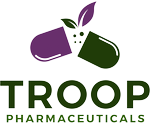β-Caroteneis anorganic, strongly coloured red-orangepigmentcalled carotenoids that isabundant in fungi,plants, and fruits. It is a member of thecarotenes, which areterpenoids(isoprenoids), synthesized biochemically from eightisopreneunits and thus having 40carbons. Among the carotenes, β-carotene is distinguished by havingbeta-ringsat both ends of the molecule. β-Carotene is biosynthesized fromgeranylgeranyl pyrophosphate.
In someMucoraleanfungi, β-Carotene is a precursor to the synthesis oftrisporic acid.
The body converts Beta Carotene into vitamin A (retinol). Vitamin A, known as a vital nutrient for vision, plays a critical role in cell growth and in maintaining healthy organs like the heart, lungs, and kidneys.
Beta Carotene, which gets its name from the Latin word for carrot, is an antioxidant that is extremely good for your eyes and skin.
Health Benefits
Some health benefits of beta carotene include:
Eye Health
Beta carotene is a provitamin A carotenoid, or a nutrient that the body readily converts into vitamin A. Research has found that eating a carotenoid-rich diet, including beta carotene, supports eye health and prevents eye diseases. Studies have shown that people with high blood levels of carotenoids may reduce their risk of macular degeneration by up to 35 percent.
Improved Cognitive Function
There is evidence that beta carotene, like other antioxidants, may improve memory and cognitive function. A review of multiple studies found that long-term beta carotene supplementation had positive effects on cognitive function and memory.
Antioxidants like beta carotene might be very helpful in reducing the symptoms of Alzheimer’s disease and age-related cognitive decline.
Skin Protection
Research has shown that antioxidants, including beta carotene, help maintain skin health and appearance, and may protect the skin against UV radiation from the sun.
Cancer Prevention
Researchers have found that a diet high in beta carotene and other antioxidants may reduce the risk of certain cancers, including breast cancer, lung cancer, and pancreatic cancer.
Health Risks
Vitamin A is a fat-soluble nutrient that can accumulate in the body, primarily in the liver, and is toxic in excessively large doses. Chronic excess intake of Vitamin A can cause dizziness, nausea, joint pain, coma, and even death. Even amounts just slightly above the recommended dietary allowance are associated with reduced bone mineral density and fracture risk.
However, beta carotene is not known to be toxic, even at large supplemental doses. The only known effect of long-term excessive beta carotene intake for most people is orange-yellow skin discoloration.
Smokers who take high doses of beta-carotene supplements have been found to be at higher risk of death due to lung cancer.
Foods rich in beta carotene
Beta carotene is concentrated in fruits and veggies with a red, orange, or yellow color.
However, don’t shy away from dark leafy greens or other green veggies, as they contain a good amount of this antioxidant as well.
Some research has shown that cooked carrots provide more carotenoids than raw carrots. Adding olive oil can also increase the bioavailability of carotenoids.
Beta carotene is a fat-soluble compound, which is why eating this nutrient with a fat improves its absorption.
The foods highest in beta carotene include:
- dark leafy greens, such as kale and spinach
- sweet potatoes
- carrots
- broccoli
- butternut squash
- cantaloupe
- red and yellow peppers
- apricots
- broccoli
- peas
- romaine lettuce
Beta carotene is also found in herbs and spices such as:
- paprika
- cayenne
- chili
- parsley
- cilantro
- marjoram
- sage
- coriander
For reference, the United States Department of Agriculture (USDA) food database gives the following details on beta carotene content:
- 100 grams of cooked carrots provides 8,279 micrograms (mcg) of beta carotene.
- 100 grams of cooked spinach without fat added provides about 6,103 mcg of beta carotene.
- 100 grams of boiled sweet potato contains 9,406 mcg of beta carotene.
Pairing these foods, herbs, and spices with a healthy fat, such as olive oil, avocado, or nuts and seeds, can help the body absorb them better.
The bottom line
Beta carotene is an important dietary compound and an important source of vitamin A. Research has linked beta carotene intake with various health benefits.
Eating a diet rich in fruits and vegetables is the best way to increase your beta carotene intake and prevent disease.




